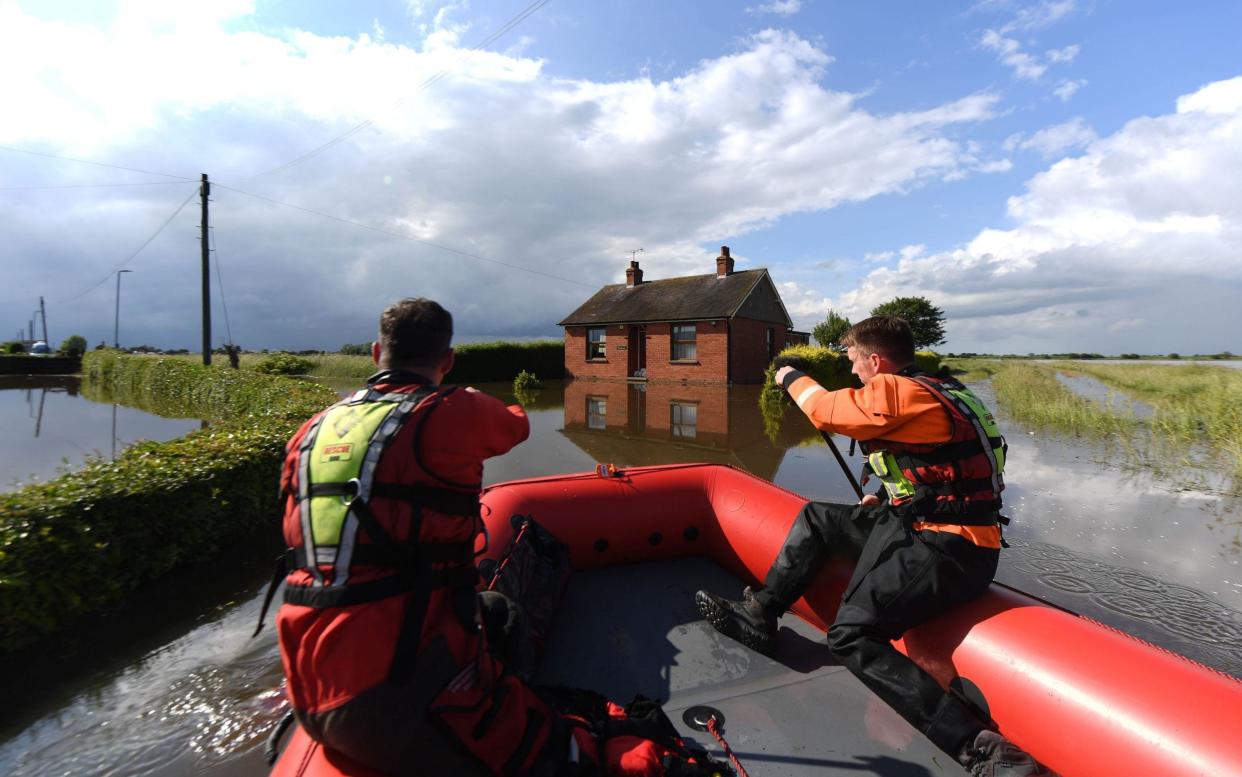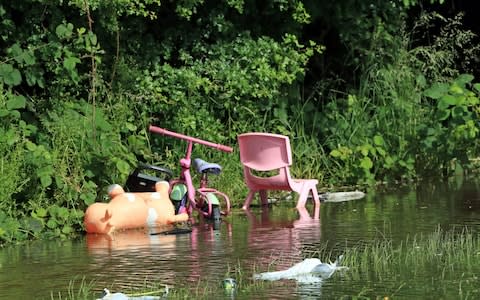Burrowing badgers blamed for catastrophic flooding that forced hundreds from their homes

Badgers burrowing into river banks in Lincolnshire has been blamed for the catastrophic flooding which saw hundreds of people evacuated.
Occupants of at least 590 properties in and around Wainfleet were forced from their homes this week after more than two months' worth of rain fell in just two days.
Residents believe badgers have been damaging the town's flood defences by building their setts on the banks of the River Steeping, which burst on Wednesday.
The Environment Agency (EA) had spent more than £300,000 on a project to lure the creatures out of Wainfleet, building new setts with the aim of enticing them in and removing them.
But the badgers reportedly refused to move into the purpose-built setts - boasting toilet areas, sleeping space and a communal area - because they were too damp.

The EA has now come under fire for the project, as well as failing to dredge the river, with one local branding them "badger-hugging incompetents".
Another complained: "All that money to make the new badger sett that they don't go in should have been put towards stronger flooding protection."
Mick Rust, deputy chair of Wainfleet All Saints Town Council, told The Telegraph that councillors' concerns had been ignored for years.
"The badgers are being blamed because the piece of bank which collapsed had badgers in it," said Mr Rust, who also runs a hire car company in the town.
"The Environment Agency decided to put new badger setts in and that cost between £300,000 and £400,000. Whatever they have done obviously hasn't worked.
"Councillors in the area and the neighbouring areas had numerous meetings with the EA over the last five years and raised their concerns about the badgers, but the EA went ahead with what they wanted to do.
"Particular councillors had wanted a badger cull when they started causing problems. Hindsight is a wonderful thing - I think it would have helped to cull the badgers. Wildlife cannot be preserved to the detriment of the people living around it.
"The blame really is on the EA who could have done more to control the badgers in a way that would have avoided harm coming to people as it has now."

He added: "The flooding is caused by a combination of factors but councillors have been telling the EA to get the river dredged for years and nothing was done about it - nothing has ever been done.
"You can't get four feet of water in a two feet-high bank."
An Environment Agency spokesperson said: “It is not true to say badgers caused the river bank to breach. The banks were put under extraordinary pressure because of the extreme amount of rainfall – more than twice the monthly average in only a couple of days.
“Our immediate priority is working with the emergency services to protect lives and property, as always with any flooding incident a full investigation will be launched in due course.”
A spokesperson for Lincolnshire County Council told The Telegraph: "Badgers did not have anything to do with the flooding."
Matt Warman, Conservative MP for Boston and Skegness, raised concerns in Parliament in 2016 about whether creating artificial setts to relocate the badgers would be an effective safeguard against future flooding.
He told The Telegraph: "Culling badgers is not a gung-ho attitude, and it is of course not something that anyone would like to have to do, but it's just a common sense approach.
"The EA has invested a serious amount of money in moving the badgers out of their setts. "They present a real risk to people and property, so the legislation needs to be re-examined to take a sensible approach that doesn't put badgers at the top of the list of priorities."
Want the best of The Telegraph direct to your email and WhatsApp? Sign up to our free twice-daily Front Page newsletter and new audio briefings.

 Yahoo News
Yahoo News 
